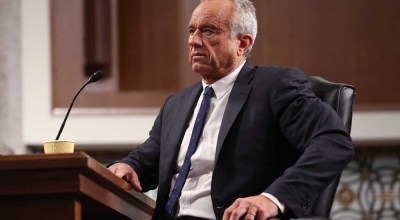When offering HPV vaccine, doctors advised to focus on cancer prevention
Published 12:00 am Friday, July 13, 2018
LOCKPORT, Ill. — In her children’s pediatrician’s office two years ago, Lockport mother Kelly DiFilippo declined the HPV vaccine for her oldest daughter, and “no one batted an eye,” she said.
But when it was time for her second daughter’s sixth-grade physical last winter, DiFilippo’s refusal of the vaccine was met with a different reaction from the same doctor.
“My pediatrician said, ‘I really want you to think about this,’ “ DiFilippo said. “She really kind of put the pressure on me.”
As HPV vaccination rates continue to lag behind other, less controversial immunizations, medical experts are urging pediatricians to stress the importance of the vaccine just as strongly as they do other shots and to tout the link to cancer prevention.
As part of the effort, the American Cancer Society is rolling out a public campaign this summer, pledging to eventually eradicate cancers related to HPV, a sexually transmitted disease, through use of the vaccine for adolescents, as well as screenings for adults who came of age before it became available in 2006.
How doctors present the vaccine to patients — and their parents — is a key component of the campaign, said Debbie Saslow, senior director of HPV and women’s cancers at the American Cancer Society, which will supply materials and data to doctors to aid them in talking with patients about the vaccine and address common concerns, she said.
“If we can get all providers to recommend the HPV vaccine the same way they do other vaccines, that will be the biggest impact,” Saslow said.
“I don’t think there’s ever been an opportunity in history to eliminate a cancer” until now, she said. “That’s been a big rallying cry. This could be like polio.”
Although HPV vaccination rates have increased over the past decade, physicians and medical groups say they remain too low.
Just under half of girls age 13 to 17 and 37.5 percent of boys in the same age group were up to date on the HPV vaccine in 2016, according to the most recent data from the Centers for Disease Control. In Illinois, the numbers were slightly higher — about 53 percent of girls and about 43 percent of boys.
While parents were slow to consent to the vaccine, squeamish over thoughts of their preteens’ sexual encounters and worried about promoting sexual promiscuity, experts say expanding the vaccination pool now lies with pediatricians and other health care providers.
The words they choose when presenting the vaccine can make a difference, said Dr. Robert Jacobson, professor of pediatrics at Mayo Clinic College of Medicine and Science.
Studies of patient-doctor interactions show “clinicians tend to make sound optional rather than give them a strong recommendation,” he said. Even physicians who recommend the HPV vaccine often offer it separately from those required by schools, Jacobson added.
“What’s often heard is, ‘Well, your child is due for a Tdap and meningitis vaccine. What are your thoughts on (the flu shot) and the HPV vaccine?’ “ Jacobson said. “That kind of language doesn’t sound like they’re routinely recommending all children have it. We’re sending the wrong message,” he said.
According to the CDC, the human papillomavirus is a sexually transmitted infection that “nearly every” sexually active, unvaccinated person will contract at some point in his or her life, yet some never show symptoms. Some strains cause genital warts, while others can lead to six cancers — throat, penal, anal, vaginal, vulva and cervical cancer.
The CDC recommends girls and boys age 11 or 12 receive the HPV vaccine — a course of two shots if you begin by age 15, and three shots for those starting the vaccine at ages 15 to 26. The earlier the vaccine is given, the more effective it is, doctors say.
When given at the recommended age, the HPV vaccine can prevent 90 percent of HPV-related cancers, according to the CDC. Saslow said the vaccine is about 97 percent effective in preventing those cancers, but protection decreases as age of vaccination increases.
The American Cancer society’s campaign, called “Mission: HPV Cancer Free,” aims to shift thinking surrounding the vaccine toward cancer prevention, rather than just the HPV infection.
In addition to outreach to doctors, the organization will launch social media campaigns, inviting volunteers and cancer survivors to post that they chose to give their child the HPV vaccine to protect them from cancer, Saslow said. “That needs to be the message.”






